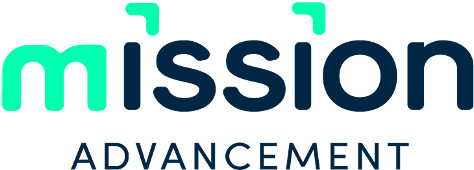 Losing a development officer can have serious implications on a nonprofit's mission. And finding the right replacement is a process that is rarely done well. There are many opinions on what the ideal characteristics are for a good development officer. Unfortunately, most of them miss the mark and bring little value to the search and hiring process. Here is another take on how to find and keep a Development Rockstar and help bring an end to the revolving door of the development office.
Losing a development officer can have serious implications on a nonprofit's mission. And finding the right replacement is a process that is rarely done well. There are many opinions on what the ideal characteristics are for a good development officer. Unfortunately, most of them miss the mark and bring little value to the search and hiring process. Here is another take on how to find and keep a Development Rockstar and help bring an end to the revolving door of the development office.
There are some in our industry who believe they are protecting the development profession by denying the truth of the following statistic: the average tenure in the development field is only 18-24 months. When you consider what is entrusted to development professionals and the hassle involved with rehiring, it is a wonder we don't give that alarming statistic more time and attention. The reasons for high turnover are numerous and warrant another article of its own. The simple answer is that most nonprofits spend too much time and effort looking for someone who looks qualified on paper, but not enough time finding people with the right innate skills.
The idea that a development officer should have all of the "technical know-how" before being hired is a flawed perspective. Unless you are in the market for a special events coordinator, the traits you are looking for in a "Rockstar Development Officer" are not learned or academic. Rather, they are God-given.

The development profession is not brain surgery. And while it sounds cliché to say it, development really is about relationships. So consider the following characteristics as you seek to expand or replace members of your development team:
A kind face – I am not talking about beauty here, but rather a quality that we all recognize when we see it. When someone appears to be kind, we are far more open to engaging him or her in conversation, or taking the next step in starting a relationship. This is the first impression, and it really does make a difference in how effectively someone is able to gain access to your donors.
A pleasant demeanor – In other words, someone who actually is Is he or she easy to engage in a conversation? If someone is awkward or clumsy with casual conversation with you, then it is likely a donor will have the same experience. Conversation is foundational to building a relationship.
Assertiveness – Not aggressiveness, but a pleasant assertiveness. This is critical because your Development Officer must be capable of guiding and influencing the relationships he/she builds. To be clear, I am not referring to a comfort with asking for large amounts of money from a donor. In fact, if someone didn't express some anxiety with "asking," then that might count against him or her. It is normal to feel anxiety with challenging donors to move out of their comfort zones. The art of asking is something that can and should be taught within the culture of your mission.
Sold on your mission – One of the most common reasons for high turnover in the development world is a lack of loyalty to a mission. You must find someone who will represent your mission with passion and conviction. For a private school, I would strongly consider an alumnus or parent of an alumnus for this reason. If you are a social service mission, then consider reviewing your donor base or volunteer force for serious candidates. While your intent should always be to offer a competitive salary, you want to hire someone who is not only looking for money, but also has a true desire to further your mission.
Communication skills – The one academic characteristic that I believe is vital. Any serious candidate must have excellent written and verbal communication skills. I would even suggest building a writing test into the interview process to ensure your prospective hire can write a good letter.
So there you have it: my recipe for success. Find the person with the qualities you can't teach. All the other skills can and should be taught in the context of your tradition and culture.
There are many quality sources for the academic aspects of the job, including books, workshops, conferences, and development consultants who serve as mentors. Some nonprofits actually utilize a development consultant to conduct the search, help with the hire, and then train the new Development Officer. If this is your path, make sure the consultant accurately represents your culture and values to avoid short tenure.
With some simple adjustments to your ideal profile, you, too, can avoid the pain and hassle associated with hiring a new Development Officer every 18 months – because Development Rockstars are not hired; they are grown with education and care.


 MISSION ADVANCEMENT
MISSION ADVANCEMENT



